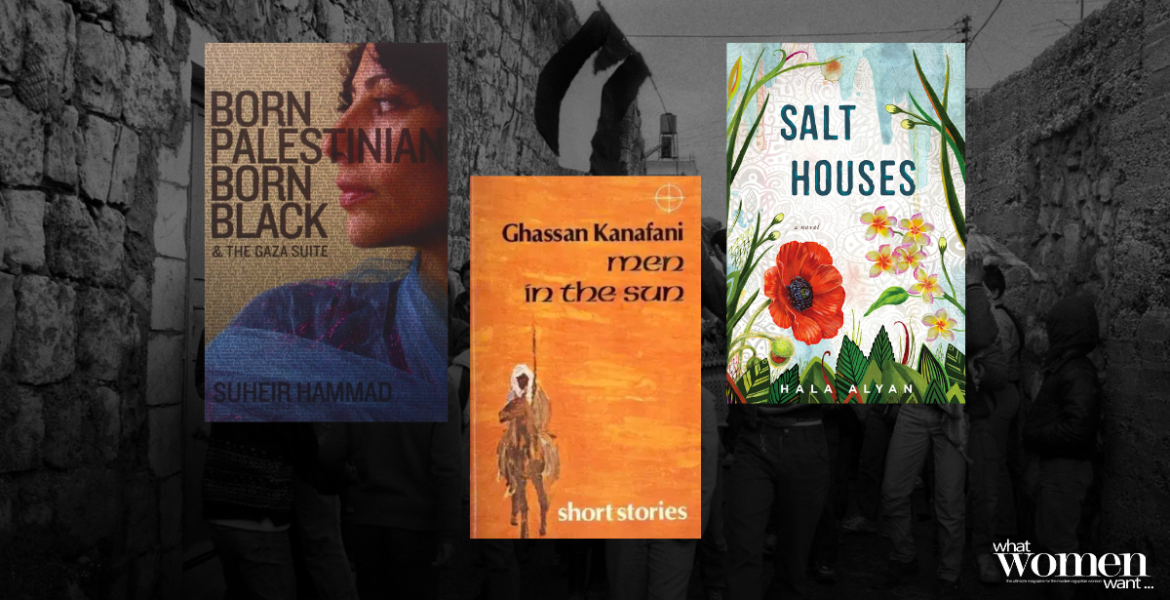Books are oppression’s worst enemy. When stripping people of their rights, the first to go is their right to knowledge. The possibility of a just future and unoccupied land is at stake when people are denied access to knowledge. The banning of any book is perturbing. It censors the freedom of speech of the author and the freedom of the reader to read it. The Israeli occupation is not any different. They consistently add books to the list of banned books including collections of poetry, books on Palestinian history and academic source material, biographies of Arab nationalist leaders, and a large number of religious works related both to Islam and Christianity. The list claims that these books are a threat to security and public order.
To combat the oppressive forces, we must read. Knowledge is truly the greatest weapon against them. The books included in this list are a quick glance into Palestine’s literary talent.
Born Palestinian, Born Black

Born Palestinian, Born Black is a collection of poems written by Suheir Hammad, a Palestinian American Poet. It gives the reader that chance to witness a prophetic voice speaking in the raw language of the struggles of oppressed people in the United States and the Middle East.
Hammad was born in Amman, Jordan, to refugee Palestinian parents. Later, she immigrated with her to Brooklyn, New York, when she was just five years old.
Men in The Sun

Men in The Sun is a collection of short stories by Palestinian writer and political activist Ghassan Kanafani. Published in 1962, the book tells the tale of three Palestinian refugees seeking to travel from the refugee camps in Iraq to Kuwait, where they hope to find work as laborers in the oil boom.
Kanafani was a leading member of the Popular Front for the Liberation of Palestine. He was sadly assassinated, while he was in Beirut in 1972.
Salt Houses

Salt Houses is Hala Alyan’s debut novel. It tells the story of a single family over three generations and their migrations from Palestine to Kuwait and America to France. The book is a sour reminder of the present effects of the Nakba. It is a direct, beautiful, and heart-wrenching remedy to the dehumanization of Palestinians.
Alyan is a Palestinian-American writer, poet, and clinical psychologist who specializes in trauma, addiction, and cross-cultural behavior. Her works explore her Palestinian identity and the effects of the displacement, particularly within the Palestinian diaspora.
Out of It

Selma Debbagh’s Out of It takes place in Gaza during the second intifada. It showcases the story of the Mujahed family and their ways of escaping their current living situation. The targeted killings, house demolitions, arbitrary arrests, and internal political unrest around them are the background of their tale.
Dabbagh is a British-Palestinian writer. She was nominated for a Guardian Book of the Year award. She has a PhD from the Department of English and Creative Writing at Goldsmiths, University of London.
I Saw Ramallah

I Saw Ramallah is the memoir of the late poet Mourid Barghouti. It is set during his return to Ramallah for the first time in the 1990s after over three decades in exile. It is an account of his journey back, the book gives the reader a glimpse into Barghouti’s emotions, fears, and questions as he crosses the bridge over the River Jordan and edges closer to his homeland.
Barghouti was a Palestinian poet and writer. He was in Deir Ghassana, near Ramallah, in the West Bank, in 1944. He studied English literature at Cairo University, graduating in 1967.

